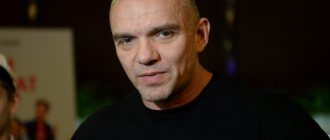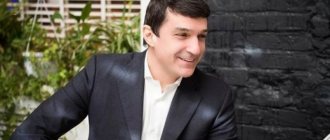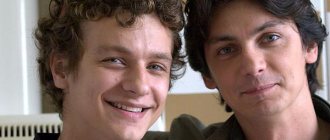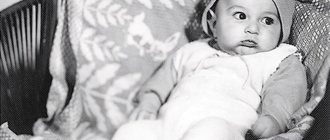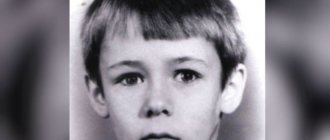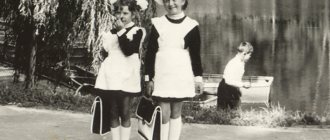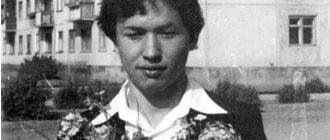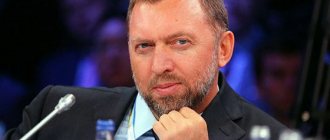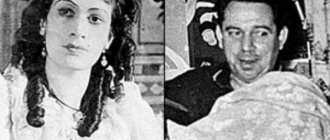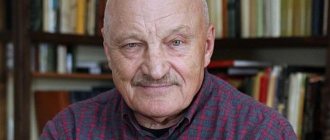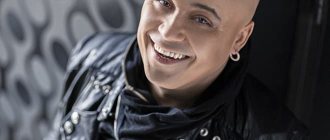Biography
Patriarch Kirill is the first person of the Russian Orthodox Church, its primate. His biography is not only about purely religious aspects. His Holiness is called a born diplomat, and public sermons are in some way political manifestos. However, there is no need to fear the merging of the state and the Church. This is the opinion of those who fear that religion will turn into an ideological tool.
“The Russian Church does not merge with anyone, including the state. She is responsible for the moral state of the people, for maintaining spiritual and material culture. And in this sense, it will be in dialogue with any government so that, through cooperation with the government, including serving these high goals that stand before it.”
Childhood and youth
Patriarch Kirill (in the world Gundyaev Vladimir Mikhailovich) was born in the cultural capital of Russia on November 20, 1946 in the family of a priest. The father of the future Patriarch of Moscow and All Rus' was ordained priest of the Church of the Smolensk Icon of the Mother of God at the time of his son’s birth.
Mother Raisa, who bore the surname Kuchina before her marriage, worked as a German language teacher at a local school. Vladimir Mikhailovich is the second child in the family, after his older brother Nikolai, whose life, like his younger sister Elena, is also closely connected with religion.
View this post on Instagram
A post shared by His Holiness Patriarch Kirill (@patriarchkirill) on Nov 26, 2021 at 5:38am PST
Patriarch Kirill
Patriarch Kirill's childhood passed like that of ordinary children - he completed 8 classes of secondary school, after which he entered the Leningrad Theological Seminary, and upon graduation - the Theological Academy. In 1969 he was tonsured a monk, where he was given the name Kirill.
In 1970, the future head of the Orthodox Church graduated with honors from the Theological Academy and received a candidate's degree in theology. From that moment, the church activity of the priest began, who reached the religious pinnacle and became the first Patriarch of Moscow and All Rus' in history to be born in the Soviet Union.
What Patriarch Kirill was like as a child - old photos of the Patriarch’s family
Patriarch Kirill of Moscow and All Rus' has headed the Russian Orthodox Church for more than 11 years, more precisely since February 1, 2009. He received high church rank after the death of his predecessor, Patriarch Alexy II.
Brief facts about Patriarch Kirill
- Worldly name: Vladimir Mikhailovich Gundyaev
- Date of birth: November 20, 1946 (age 73)
- Place of birth: Leningrad
- Height: 178 cm
- Weight: 92 kg
- Education: Leningrad Theological Academy
Childhood and family of the Patriarch
Patriarch Kirill - in the world Vladimir Gundyaev was born on November 20, 1946, born in the city of Leningrad. Having become the second son in the family of Mikhail Gundyaev, at that time the chief mechanic of the machine-building plant named after. Kalinin (hereinafter - Orthodox priest, archpriest). He grew up in a religious family, despite the fact that that period had anti-church sentiments.
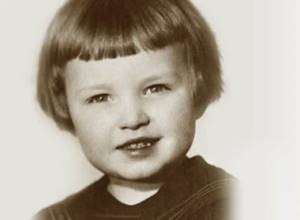
The Patriarch’s grandfather is Vasily Stepanovich, originally from Lukoyanovsky district, a machinist by training. He began an independent study of theological literature. In 1922, he was reported by oppositionists from a religious movement - opponents of the Russian Church. However, even in prison, he did not renounce his faith and continued secret worship, going through 47 prisons and 7 exiles and living in prison for about 30 years.
Vladimir’s father, Mikhail Vasilyevich Gundyaev, entered the Higher Theological Courses in Leningrad in 1926 and served for several years in the Red Army. By 1933, he graduated from a mechanical technical school and entered the Industrial Institute in Leningrad. He was sentenced to 3 years due to political disloyalty. In March 1947, he received the rank of deacon, and worked his way up to the rector of the church at the Bolsheokhtinsky cemetery (St. Nicholas Church), to which he was appointed in 1972. Mother, Raisa Vladimirovna Gundyaeva, was a school teacher. She taught German. She was devout and sang in the church choir. It was there that she met her future husband.
The clergyman has a brother, Nikolai, and a younger sister, Elena. They also connected their lives with the church. My sister works as the director of an Orthodox gymnasium and is the vice-rector at the St. Petersburg Theological Academy). The brother was the rector of the Theological Academy in St. Petersburg and the rector of the Transfiguration Cathedral in St. Petersburg.
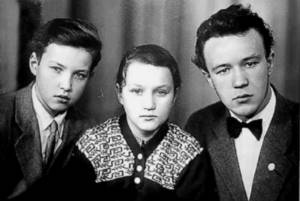
The family of the future Patriarch lived in dire need and was in debt. Father Mikhail Vasilyevich received an unimaginable fine for those years - 120 thousand rubles - for serving in the church. To pay off the debt, money was collected from Leningrad parishes. The family was saved from hunger by parishioners who brought food.
The formation of Vladimir’s views was greatly influenced by his grandfather, who told him about his fearlessness and steadfastness even in the most difficult moments of his life. Following in his grandfather's footsteps, he became an opponent of the communist regime and did not join the ranks of the pioneers or Komsomol members.
After graduating from 8 classes, Vladimir decided to live an independent life and in 1962 he was hired as a cartographer for the Leningrad complex geological expedition. Later, in 1965, he entered the Leningrad Theological Seminary and continued to study at the Theological Academy.
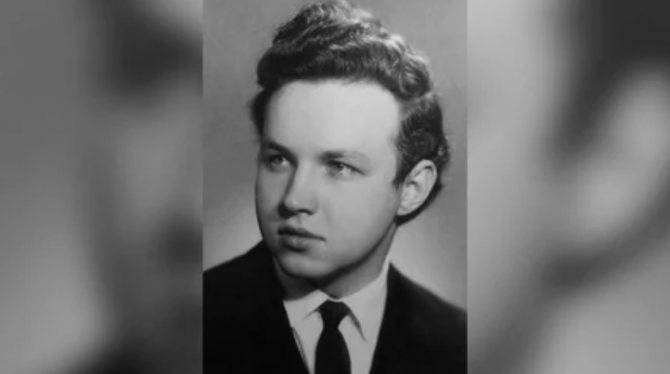
RELIGIOUS ACTIVITIES
In April 1969, Vladimir was tonsured a monk and received the spiritual name Kirill, ordained a hierodeacon, and then a hieromonk. He graduated from the Academy with honors and a candidate of theological sciences degree. In 1971, he was elevated to the rank of archimandrite, and later became rector of the church in Geneva.
SOCIAL ACTIVITY
Having risen from archimandrite to metropolitan in the 90s, Metropolitan Kirill delved into public activities. In 1994, he began hosting the spiritual and educational program “The Word of the Shepherd.” Since 1995, he began fruitful cooperation with the Government of the Russian Federation. In 2008, after the death of Patriarch Alexy I, he became the Locum Tenens Patriarch, and in 2009 he was elected Patriarch of Moscow and All Rus'.
Bishopric
The religious activity of Patriarch Kirill developed rapidly from its very beginnings. During the first year after graduating from the theological academy and taking monastic vows, the priest was elevated to the highest rank several times, and was also appointed as a representative of the Moscow Patriarchate at the World Council of Churches in Geneva. After 3 years, His Holiness was appointed to the post of rector of the Theological Seminary and Academy of Leningrad and headed the diocesan council of the Leningrad Metropolis.
View this post on Instagram
A post shared by His Holiness Patriarch Kirill (@patriarchkirill) on Mar 24, 2021 at 1:44am PDT
Father Kirill
In March 1976, Father Kirill was ordained as a bishop and became a member of the commission on inter-church relations and Christian unity in the Synod. In 1977, the Bishop of Vyborg was elevated to the rank of archbishop, and a year later he already ruled the patriarchal parishes in Finland. In 1978, Archbishop Kirill became deputy head of the department for external church relations and began teaching at the Moscow Theological Academy.
In 1984, the future head of the Orthodox Church was appointed Archbishop of Vyazemsk and Smolensk, and in 1986 he became the manager of Orthodox parishes in the Kaliningrad region. Having shown remarkable hard work and diligence in his service, Patriarch Kirill in 1989 was appointed a permanent member of the Synod, where he actively participated in the development of laws on religion and religious freedoms. In February 1991, Archbishop Kirill was elevated to the rank of metropolitan.
View this post on Instagram
A post shared by His Holiness Patriarch Kirill (@patriarchkirill) on Mar 14, 2021 at 7:06am PDT
Patriarch Kirill during his episcopal service
During the period of the collapse of the USSR and political upheavals in Russia, the patriarch took a clear peacekeeping position, which gained trust and respect among the population. At the same time, the Metropolitan made a significant contribution to the preservation and strengthening of peace, for which he was awarded the honorary Loviya Prize three times.
In the mid-90s, the Moscow Patriarchate showed political activity, and the future head of the Orthodox Church became a kind of “Prime Minister of the Russian Church.” Thanks to him, the Russian Orthodox Church was reunited with parishes abroad, and relations between the Russian Orthodox Church and the Vatican were stabilized.
Biography of Kirill, Patriarch of Moscow and All Rus'
On April 3, 1969, Metropolitan Nikodim (Rotov) of Leningrad and Novgorod was tonsured a monk with the name Kirill. On April 7 he was ordained a hierodeacon, and on June 1 of the same year - a hieromonk.
In June 1970, Hieromonk Kirill was awarded the degree of Candidate of Sciences in Theology.
From 1970 to 1971, he was a teacher of dogmatic theology and an assistant inspector of the Leningrad Theological Academy and Seminary, at the same time - the personal secretary of Metropolitan Nikodim of Leningrad and Novgorod and the class teacher of the first class of the seminary.
On September 12, 1971, Hieromonk Kirill was elevated to the rank of archimandrite. In 1971-1974 he was a representative of the Moscow Patriarchate at the World Council of Churches in Geneva.
In 1974-1984 - rector of the Leningrad Theological Academy and Seminary, associate professor of the Department of Patrolology of the Leningrad Theological Academy.
In 1975-1998, Archimandrite Kirill was a member of the central committee and executive committee of the World Council of Churches.
On March 14, 1976, he was elevated to the rank of Bishop of Vyborg, and on September 2, 1977, to the rank of Archbishop.
He was Deputy Patriarchal Exarch of Western Europe (1976-1978), a member of the Holy Synod Commission on Christian Unity (1976-1984), manager of the Patriarchal parishes in Finland (1978-1984), Deputy Chairman of the branch of the Department for External Church Relations in the city of Leningrad (1978-1984). 1984).
On December 26, 1984, he was appointed Archbishop of Smolensk and Vyazemsky.
Since 1986, Archbishop Kirill has been the administrator of parishes in the Kaliningrad region.
Since 1988 - Archbishop of Smolensk and Kaliningrad.
In 1989-2009 he was chairman of the Department for External Church Relations (since 2000 - Department for External Church Relations), a permanent member of the Holy Synod. As chairman of the department, he participated in the preparation of laws “On Freedom of Religion” (1990), “On Freedom of Conscience and Religious Associations” (1997).
He was the manager of the Orthodox Hungarian deanery (1989-1996), the temporary manager of the Hague-Netherlands diocese (1990-1991), and the temporary manager of the Korsun diocese (1990-1993).
On February 25, 1991, he was elevated to the rank of metropolitan.
In 1993, Metropolitan Kirill initiated the creation of the World Russian People's Council (VRNS), was a co-chairman, and since 1995 - deputy head of the VRNS.
In 1994-2002 - member of the Public Council for the Revival of the Cathedral of Christ the Savior, in 1994-1996 - member of the Foreign Policy Council of the Russian Ministry of Foreign Affairs.
On December 6, 2008, the day after the death of Patriarch Alexy II, at a meeting of the Holy Synod, Metropolitan Kirill was elected patriarchal locum tenens.
On January 27, 2009, the Local Council of the Russian Orthodox Church elected Metropolitan Kirill as Patriarch of Moscow and All Rus'. On February 1, 2009, the enthronement of Patriarch Kirill of Moscow and All Rus' took place in the Cathedral of Christ the Savior.
Patriarch Kirill is the author of numerous publications and reports and a number of books, an honorary member of many Russian and foreign academies, an honorary professor and doctor of a number of universities.
As part of official delegations, he visited all local Orthodox churches, including accompanying Patriarch Pimen and Patriarch Alexy II on their trips abroad. He took part in contacts with churches in many countries of the world, and participated in the work of inter-Christian organizations.
Patriarch Kirill was awarded the orders of the Russian Orthodox Church: Holy Equal-to-the-Apostles Grand Duke Vladimir, II degree; Saint Alexy, Metropolitan of Moscow, II degree; Holy Blessed Prince Daniel of Moscow, 1st degree; St. Sergius of Radonezh, I and II degrees; Saint Innocent, Metropolitan of Moscow, II degree, as well as orders of local Orthodox churches.
Among his state awards are the Order of Friendship of Peoples (1988), the Order of Friendship (1996), the Order of Merit for the Fatherland, III degree (2000), the Order of Merit for the Fatherland, II degree (2006), the Order of Alexander Nevsky (2011) , medal "65 years of Victory in the Great Patriotic War 1941-1945"
(Transnistrian Moldavian Republic, 2010), Order “Sharaf” (Azerbaijan, 2010), the highest order of Moldova - the Order of the Republic (2011), Belarusian Order of Friendship of Peoples (2012).
Patriarch Kirill has also received numerous awards and prizes from public organizations.
In 1993, 2000, 2001, 2002, 2003, 2009 and 2010, he was elected “Person of the Year” in the “Religion” category by the Russian Biographical Institute.
The material was prepared based on information from RIA Novosti and open sources
Patriarchate
Metropolitan Kirill came to the patriarchal throne thanks to his active social and political position. Since 1995, he has carried out fruitful work with the government of the Russian Federation and widely covered spiritual and educational issues on television in the “Word of the Shepherd” program. Then he managed to create the concept of the Russian Orthodox Church in the field of church-state relations, and already in 2000 the Fundamentals of the Social Concept of the Russian Orthodox Church were adopted.
View this post on Instagram
A post shared by His Holiness Patriarch Kirill (@patriarchkirill) on Mar 30, 2021 at 1:25am PDT
Dmitry Medvedev and Patriarch Kirill
In 2008, after the death of Alexy II, Metropolitan Kirill became the locum tenens of the patriarchal throne, who in 2009 was elected Patriarch of Moscow and All Russia in a local vote, gaining 507 votes and 677 possible. Metropolitan Kirill's enthronement took place on February 1, 2009.
The ceremony was attended by the top officials of the country's political elite - the then current Russian President Dmitry Medvedev and his wife Svetlana Vladimirovna, Russian Prime Minister Vladimir Putin, the wife of the country's ex-president Naina Yeltsin and the head of Moldova Vladimir Voronin. The Russian leadership then expressed hope for further cooperation between the Russian Orthodox Church and the state.
View this post on Instagram
A post shared by His Holiness Patriarch Kirill (@patriarchkirill) on Jul 12, 2021 at 9:51am PDT
Patriarch Kirill and Vladimir Putin
Patriarch Kirill bears the patriarchal cross to this day. He regularly makes visits abroad, where he is considered a person of fundamental knowledge, broad erudition and high intelligence. The meetings of the high priest with Western religious and secular leaders significantly strengthened the position of the Russian Orthodox Church and expanded the boundaries of cooperation between Russia and foreign countries.
Patriarch Kirill: biography
Patriarch Kirill is a well-known personality of modern Russia, whose abundant activities command respect throughout the world. In addition to his main responsibilities, the head of the Orthodox Church contributes to the development of Russia, delves deeply into the country’s foreign policy activities and leads an active charity program.
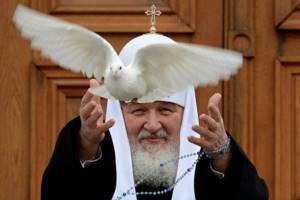
Patriarch Kirill
Patriarch Kirill (in the world Gundyaev Vladimir Mikhailovich) was born in the cultural capital of Russia on November 20, 1946 in the family of a priest. The father of the future Patriarch of Moscow and All Rus' was ordained a priest of the Church of the Smolensk Icon of the Mother of God at the time of his son’s birth, and his mother Raisa Kuchina worked as a German language teacher at a local school. Vladimir Mikhailovich was the middle child in the family; he has an older brother, Nikolai, and a younger sister, Elena, whose activities are also closely related to religion.
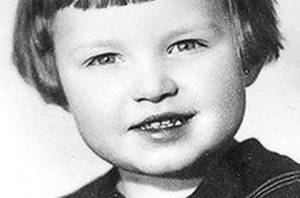
Patriarch Kirill in childhood
Patriarch Kirill's childhood passed like that of ordinary children - he completed eight classes of secondary school, after which he entered the Leningrad Theological Seminary, and upon graduation, the Theological Academy. In 1969, he was tonsured a monk, where he was given the name Kirill.
In 1970, the future head of the Orthodox Church graduated with honors from the Theological Academy and received a candidate's degree in theology. From that moment, the church activity of the priest began, who reached the religious pinnacle and became the first Patriarch of Moscow and All Rus' in history to be born in the Soviet Union.
Scandals
Despite opinion polls confirming that Patriarch Kirill is supported by 73% of the population, he has repeatedly become involved in high-profile scandals that are widely discussed in society. He was criticized for his participation in organizing the import of tobacco and alcohol products into Russia and the illegal use of tax benefits. Then the majority of religious leaders called this action a provocation of the head of the Orthodox Church and an intention to tarnish the name of a religious person.
View this post on Instagram
A post shared by His Holiness Patriarch Kirill (@patriarchkirill) on Feb 13, 2021 at 6:38am PST
After this, they tried to convict him of material weaknesses, to which, according to church laws, he has no right. Foreign media have estimated that Patriarch Kirill’s fortune has reached $4 billion. At the same time, the possessions of the head of the Russian Orthodox Church included an expensive penthouse, a gold Breguet watch worth € 30 thousand, yachts, planes and expensive cars.
A relict forest was sacrificed for the construction of a residence in Gelendzhik. In addition, local residents now have no access to the sea and the road to the village cemetery. Appeals from citizens to the Department for Interaction between Church and Society of the Moscow Patriarchate and to the administration of the Russian President remained unanswered.
View this post on Instagram
A post shared by His Holiness Patriarch Kirill (@patriarchkirill) on Mar 6, 2021 at 10:22pm PST
Patriarch Kirill in Sofia
To all the insinuations associated with his person, Patriarch Kirill made categorical refutations and stated that the funds of the Moscow Patriarchate are used for the intended purpose and go to the development of churches and charity. The head of the Orthodox Church considers such statements to be attempts to humiliate and undermine his authority in the Russian Orthodox Church, and calls on people who “criticize the church” to spiritual healing.
In March 2018, a scandal occurred in Bulgaria. The bishop felt that President Rumen Radev belittled Russia's role in the liberation of the Balkan country from the Ottoman yoke. In response, the Bulgarian prime minister said that a person who served in the KGB in his youth does not have the right to tell people whether their actions are right or wrong. Protodeacon of the Russian Orthodox Church Andrei Kuraev fears that the patriarch’s manner of conducting dialogue has harmed relations between the two states, which are already experiencing a crisis, and now diplomats will have to make new efforts to restore their former trust.
Remember Jap? News from the nineties?
Wasn’t his murder a falsification? There are a lot of dark spots and striking similarities…. Vyacheslav Ivankov Yaponchik & Patriarch Kirill Gundyaev Published by Ekaterina Tikhomirova Tuesday, June 26, 2021
Yaponchik and Patriarch Kirill
Another poignant moment, more like a cruel joke, is the comparison of Patriarch Kirill with thief in law Vyacheslav Ivankov, nicknamed Yaponchik, who fell at the hands of a killer. Many collages comparing photographs of men have circulated on the Internet. Users note subtle similarities and wonder if it is a coincidence that the crime boss died in 2009, and six months later the Church found a new primate.
Personal life
The personal life of Patriarch Kirill consists of serving people and God. According to church laws, he does not have the opportunity to start a secular family. The children of Patriarch Kirill are his large flock. The head of the Russian Orthodox Church pays special attention to charity and care for children who have lost parental care.
View this post on Instagram
A post shared by His Holiness Patriarch Kirill (@patriarchkirill) on Apr 8, 2021 at 7:44am PDT
Patriarch Kirill
In addition, he deeply delves into the political processes of Russia, is active in foreign policy and boldly expresses his opinion, even if it runs counter to the ideology of the political elite of the Russian Federation.
Scientific and educational activities occupy a special place in the life of Patriarch Kirill. He is the author of a number of books and articles on the history of the Christian church and Orthodox unity, an honorary member of Russian and foreign theological academies and is a member of the Commission for State Prizes in the field of literature.
